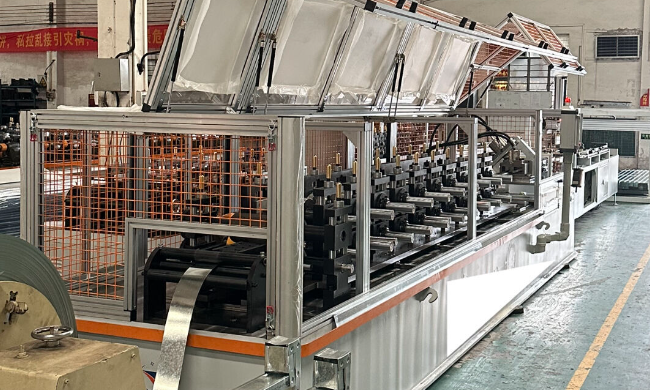
Posted on Monday, September 30, 2024
A Custom Roll Forming Machine is a highly specialized piece of equipment designed to produce metal components through a process called roll forming, where long strips of metal are passed through a series of rollers to gradually form a desired shape. What makes it "custom" is its ability to be tailored to meet the unique needs of specific industries or product profiles, making it an ideal solution for companies that require precision and flexibility in their manufacturing processes.
Custom roll forming machines offer manufacturers the flexibility to produce unique, highly specific metal components efficiently and with precision. Whether it’s for specialized profiles, tight production tolerances, or integration of additional processes, these machines are essential for industries where standard solutions simply don’t meet the demands. By investing in a custom roll forming machine, companies can streamline their production, reduce waste, and ultimately lower costs while ensuring they meet the exact requirements of their projects.

Used Purlin Roll Forming Machines for Sale Worldwide
Posted on Sunday, January 25, 2026
Pre-Owned Roll Forming Machines for Purlin & Structural Steel Profiles

Used Roof Panel Roll Forming Machines for Sale Worldwide
Posted on Sunday, January 25, 2026
Pre-Owned Roll Forming Machines for Roofing Panel Production

Used Roll Forming Machines for Sale Worldwide
Posted on Tuesday, January 20, 2026
Pre-Owned Roll Forming Machines with Inspection, Verification & Global Support

Steel Coil Supply for Roll Forming Machines Worldwide
Posted on Tuesday, January 20, 2026
Reliable Steel Coil Supply for Roll Forming, Fabrication & Manufacturing Applications
Copyright 2026 © Machine Matcher.